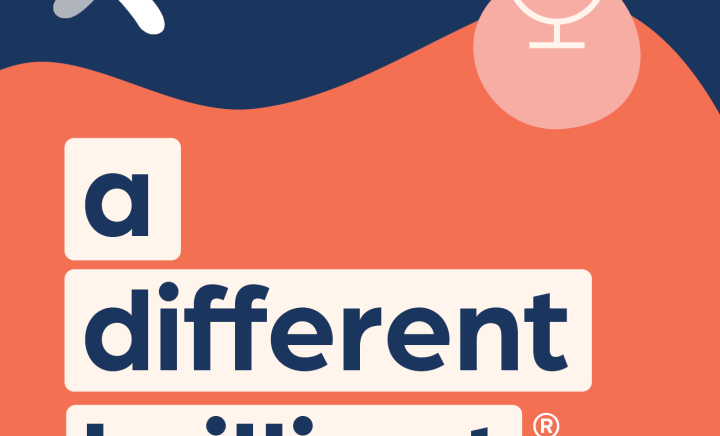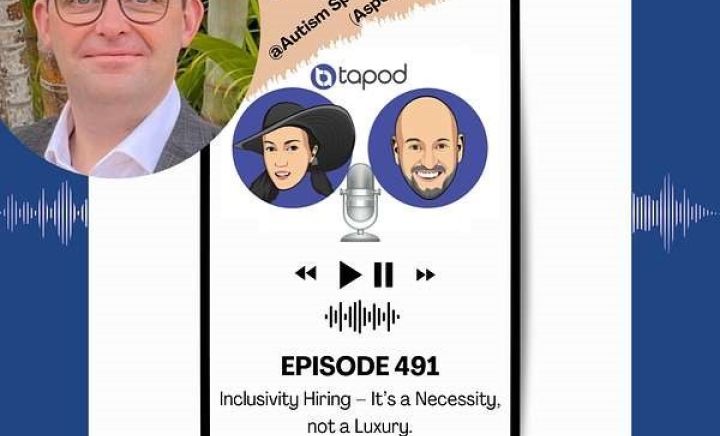Explore these practical and inclusive resources to support autism-friendly workplaces, empower Autistic individuals, and build understanding across communities. All resources are free for you to download and share.

Understanding autism & neurodiversity - Info Sheets

Professionals and organisations - Info Sheets

Individuals and families - Info Sheets
Bec’s Workplace Inclusion Journey
Rebecca Street from the Aspect Autism Friendly team speaks about how from day one an inclusive, supportive environment with reasonable accommodations and opportunities for job crafting has led to transformative growth in her professional and personal life. Bec hopes this story inspires people to think about what they can do both as individuals and organisations to support their Autistic and neurodivergent staff.
Research reviews
Here you can learn about research initiatives by both Aspect and other researchers into ways to make society more accessible for Autistic individuals. At Aspect, all of this research feeds into the work we do to make Australia autism-friendly.
Improving Autistic Experiences in the Workplace: Key Factors and Actionable Steps
Paper: Nishith, S., O’Brien, A.M., Li, C. et al. Improving Autistic Experiences in the Workplace: Key Factors and Actionable Steps. J Autism Dev Disord (2025). https://doi.org/10.1007/s10803-025-07036-y
What was this research about?
This research investigates how workplaces can be modified to better support Autistic employees.
The study included:
- Quantitative ratings of workplace factors from 85 Autistic adults across various employment sectors.
- Qualitative descriptions of positive and negative workplace experiences.
- Thematic analysis to identify overarching principles and actionable strategies.
The research aimed to answer two key questions:
- Which workplace factors most positively and negatively impact autistic employment experiences?
- How can these factors be modified across different levels of the workplace ecosystem (individual, team, organisation, society)?
Why is this research important?
This research is important because it addresses a gap in autism employment research, as the authors note, “While previous work has highlighted factors specific to individuals and/or job sectors that serve as barriers or facilitators to autistic employment, the question of how to modify the workplace to best support Autistic people remains under-researched.”
Historically, research and practice in autism employment has tended to be grounded in a deficit model, which views autism primarily through the lens of impairment and assumes that success depends on the individual's ability to adapt to existing workplace expectations. In contrast, this research adopts a social model of disability, which recognises that barriers to employment for Autistic people are often created by the environment, not the person or their disability themselves.
The research reframes autistic employment as a matter of workplace design, culture, and systemic support. It encourages us to look beyond the person and ask: What can be changed in the environment to better support Autistic people in the workplace? This approach is more inclusive and empowering, and it opens the door to practical, multi-level changes that can improve employment outcomes for Autistic people, not by asking them to change, but by changing the systems around them.
What were the findings?
Four key themes emerged from the qualitative data:
- Acceptance: Autistic employees emphasised the importance of being respected, understood, and valued as they are, rather than being expected to mask or change their identity to fit in.
- Communication: Clear, direct, and inclusive communication that is free from ambiguity or social nuance was identified as essential for reducing stress and enabling effective collaboration.
- Autonomy: Having control over how, when, and where work is done, including flexibility in tasks and environment, was seen as critical to wellbeing and productivity.
- Accommodations: Access to both formal supports (like sensory-friendly spaces or flexible hours) and informal adjustments (such as understanding colleagues) helps Autistic employees feel safe and capable at work.
These themes reflect the core needs of Autistic employees and highlight areas where workplaces can make meaningful improvements.
The research makes a series of explicit, evidence-based recommendations to improve autistic employment outcomes. These are organised across four levels of the workplace ecosystem – the individual, team, organisation and society - and are grounded in the lived experiences of Autistic adults.
Individual Level
The research recommends that workplaces provide personalised supports that empower Autistic individuals to succeed without needing to mask or conform to rigid expectations.
Improving outcomes starts with recognising and responding to individual needs. The research recommends providing clear task training, supporting self-advocacy, and ensuring access to mental health resources. Respecting sensory and communication preferences helps create a foundation where Autistic employees feel safe, understood, and equipped to succeed.
Team Level
Teams play a vital role in shaping daily experiences. The research highlights the importance of empathetic relationships, direct communication, and autism awareness training. Encouraging collaborative decision-making ensures Autistic voices are heard and valued within team dynamics.
Organisational Level
Organisations are encouraged to move beyond one-off adjustments and embed inclusion into core practices. Recommendations include normalising accommodations, implementing inclusive recruitment, and creating feedback channels. Training managers in neurodiversity-aware leadership supports a consistent and inclusive workplace culture.
Societal Level
Lasting change requires action at a broader level. The research calls for inclusive policies, investment in autism-friendly employment programs, and public awareness campaigns. Promoting cross-sector collaboration helps build sustainable systems that support Autistic people across industries and communities.
What have we learned?
We’ve learned that improving employment outcomes for Autistic people requires systemic, multi-level change, not just individual adaptation. Autistic employees are more likely to succeed in workplaces that are designed to meet diverse needs, rather than expecting them to conform to neurotypical standards.
One of the most impactful factors identified in the research is task training. When delivered clearly, consistently, and in accessible formats, it helps reduce ambiguity, build confidence, and support autonomy. Defined as structured, role-specific instruction that outlines expectations and processes, task training enables autistic employees to navigate their roles with greater independence and clarity.
The research identified workplace-related mental health challenges as the most significant negative factor for autistic employees. Environments that lacked understanding, flexibility, or support contributed to high levels of stress, burnout, and anxiety. The pressure to mask autistic traits or meet rigid expectations without accommodations had a lasting impact on wellbeing. Creating inclusive, affirming environments is essential to reducing these risks and supporting long-term success.
Creating inclusive workplaces also means embedding practices that reflect five core principles:
- Inclusive communication: Clear, direct communication, adapted to different processing styles, reduces anxiety and supports collaboration.
- Respectful relationships: Acceptance and understanding foster psychological safety and genuine inclusion.
- Flexible work arrangements: Autonomy in how and when work is done helps manage energy, sensory needs, and focus.
- Accessible accommodations: Adjustments should be readily available and normalised, not treated as exceptions.
- Mental health support: Access to wellbeing resources and supportive management is essential to prevent burnout and sustain engagement.
How does this research align with Aspect’s Autism Friendly Employment Service?
The research reinforces a key principle behind the development of Aspect’s Autism Friendly Employment service: that improving employment outcomes for Autistic people requires changing the workplace, not expecting individuals to simply cope better. Grounded in the social model of disability, both the research and Aspect’s Autism Friendly Employment Service challenge deficit-based approaches and focus on removing environmental barriers to inclusion.
Aspect’s comprehensive framework guides organisations through ten change levers, from leadership and recruitment to policies and wellbeing, each designed to support systemic change. These areas reflect the research’s core themes of acceptance, communication, autonomy, and accommodations, and its call for multi-level action across individual, team, organisational, and societal levels.
Together, the research and Aspect’s Autism Friendly Employment service offer a clear, practical roadmap for organisations committed to creating workplaces where Autistic people are respected, supported, and empowered to succeed.
Podcasts

a different brilliant® Podcast


